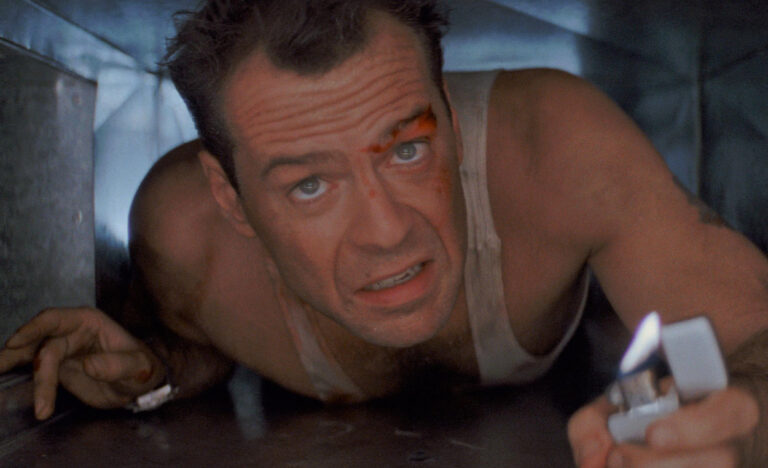Bruce Willis could star in film with Marilyn Monroe, thanks to his AI ‘digital twin’

Earlier this year, Die Hard star Bruce Willis announced his retirement from Hollywood after being diagnosed with aphasia, a condition that affects a person’s ability to speak, write, and understand verbal and written language. According to reports, the star struggled with “cognitive issues” while filming recent movies, could not remember his lines, and used an earpiece on set.
“It was increasingly difficult to have him on screen,” a source told Page Six at the time. “So they’d use body doubles, not just for action [sequences], but for maximising his screen time. He could not act anymore.”
Now, it seems like the 67-year-old legend will continue appearing on the big screen with the possibility of starring alongside late icons like Marilyn Monroe and Cary Grant, all thanks to his ‘digital twin’. Signing a historic deal with Deepcake, an AI-powered content optimisation platform, Willis has become the first Hollywood celebrity to sell his image rights to create a deepfake (or digital clone) of himself for use in future films—without ever being on set.
“With the advent of the modern technology, I could communicate, work and participate in filming, even being on another continent,” Willis said in a testimony on Deepcake’s website. “It’s a brand new and interesting experience for me, and I am grateful to our team.”
Willis’ decision follows his first brush with the technology back in August 2021, when his face was digitally grafted onto 48-year-old actor Konstantin Solovyov in a commercial for the Russian telecommunications company, MegaFon. Here, the AI was trained using content from his previous films like Die Hard and Fifth Element to truly nail his likeness.
“I liked the precision of my character. It’s a great opportunity for me to go back in time,” the star added in his statement. While Willis can now recreate projects in just three to five days, his estate has the final say on the content that’s produced with his face.
According to Sandro Monetti, director of the 2022 documentary Tech to the Future, the innovation in question has the potential to change Hollywood forever as Deepcake aims to become the biggest global talent agency in the industry. “They are thinking bigger than just using this tech for cool Instagram Reels,” he said, as noted by Metro. “Deepcake wants a large slice of the Hollywood money pie—and if it can get the rights to stars living and dead, they might well get it.”
“Actors of today now have the chance to share the screen with classic idols like Cary Grant or Marilyn Monroe. If this tech had been available just a bit earlier, we could have seen Elvis in his own biopic,” Monetti continued, referring to the 2022 Austin Butler-starrer, Elvis.
Deepcake CEO Maria Chmir also confirmed that the company is in talks with several film studios and estates of late stars. “We create digital twins of celebrities and the actual production process doesn’t require the physical presence of a celebrity on stage,” she said. “It means comics like Charlie Chaplin and Kevin Hart can interact in one frame now.”
Earlier this year, Marvel signed a 20-year deal to cast the late Stan Lee in films using computer-generated imagery (CGI) and old footage. At the time, several fans slammed the company for elder abuse and questioned if digital resurrections are truly an ethical way to honour the dead. Disney has also previously revived Peter Cushing as Grand Moff Tarkin in Rogue One: A Star Wars Story—meanwhile Lucasfilm decided to include unused footage of Carrie Fisher from Episode VII: The Force Awakens in Episode IX: The Rise of Skywalker after her passing.
Fisher’s daughter, Billie Lourd, was additionally cast as Princess Leia’s younger version in a flashback, with her mother’s face digitally added using CGI.
In Willis’ case, the star has already shot three more action thrillers before the creation of his digital twin, including Detective Knight: Rogue, Die Like Lovers and Paradise City—with the former set to hit theatres on 21 October 2022.




